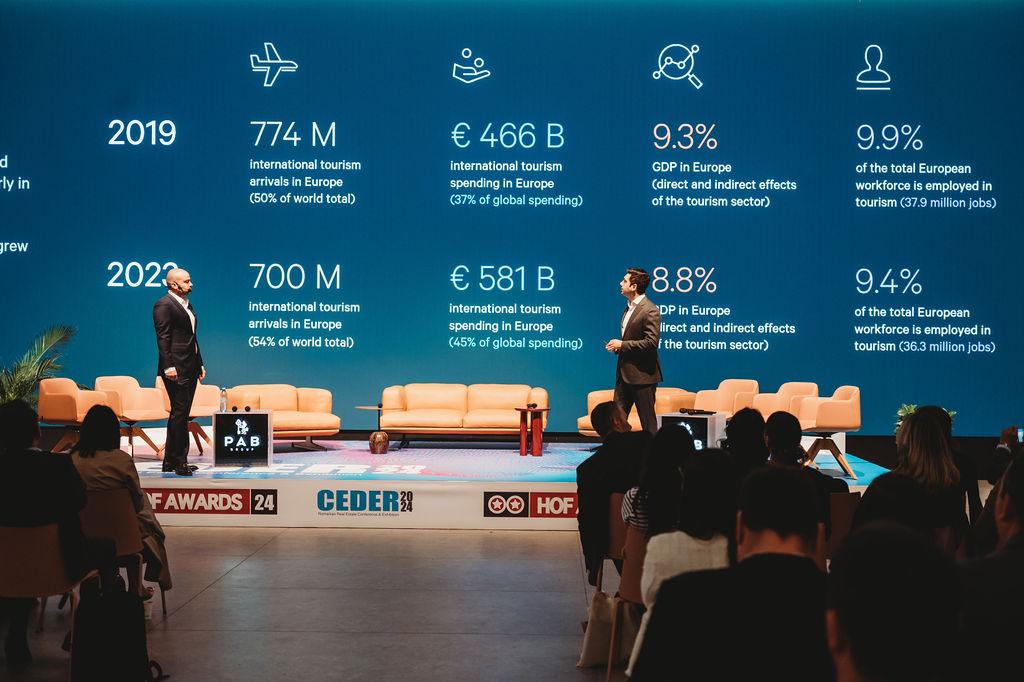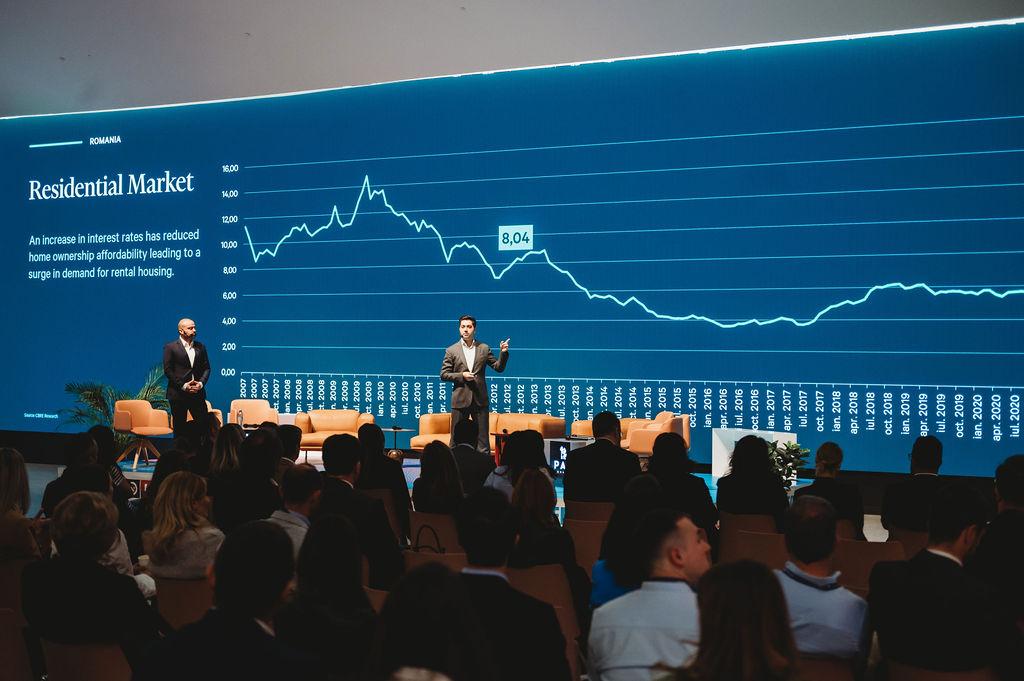CEDER 2024 in review: CBRE presentation on sustainability
At CEDER 2024, CBRE held a presentation about the most important factors impacting the market at this time. They dedicated a section of the presentation to sustainability, and they started by pointing out that the built environment has an impact of 40% over the global carbon footprint. Tudor Ionescu, Head of Advisory & Transactions Office, CBRE said: „There is a very strong impact of construction affecting everything that's happening around us. (…) [These] are (…) the pillars that any ESG sustainability strategy needs to focus on: trackability of extractive materials, the way a building consumes energy, the water consumption and of course the wasted parts.”
Co-presenter Mihai Pătrulescu, Head of Investment Properties at CBRE, went on to point out that ESG requirements have moved on from the gradual, voluntary phase, to a very concrete phase. He said: “Now, towards 2030, we're talking about accountability and very clear targets”, given the regulations imposed by the European Union, from the EU Taxonomy to the Sustainable Finance Disclosure Regulation (SFDR), the Corporate Sustainability Reporting Directive (CSRD) and the Energy Performance of Buildings Directive (EPBD), which all aim to improve transparency and accountability in the field of ESG.
Closing in on the EPBD, the presenters showed a breakdown of what needs to happen for existing and for new buildings in the coming years. Pătrulescu said: “I think the most important one is 2030. All new developments will need to be zero emissions on site. Then, for the existing buildings, we need to agree on a timeline to lower the consumption of the buildings. So, retrofitting will become more and more important. Already, [in] 2030, we're talking about a 16% energy efficiency. And [in] 2033, we're talking 26%.”
The presenters emphasized the fact that, come 2030, “there are a lot of companies that have net zero commitments happening before the landlord and investors have net zero commitments, precisely in the financial sector”, which will generate an imbalance on the market.
The final point of the presentation was a positive note regarding investments, based on energy audits performed by CBRE: “with 1.4% of the investment, you can get 30% of the total CO2 savings. So we are in the early stages, and the good part about it is that if we go and we look at the value of the building and also the financing of the building, we see an improvement on both ends.”
To conclude the presentation, Pătrulescu summarized the three essential pieces of advice CBRE had to give the audience: to get aligned with the upcoming regulations, with the occupiers’ net zero targets, and then finally, to take into consideration “the urgency to start looking at retrofitting for existing office buildings for the short future of five years from now.”










